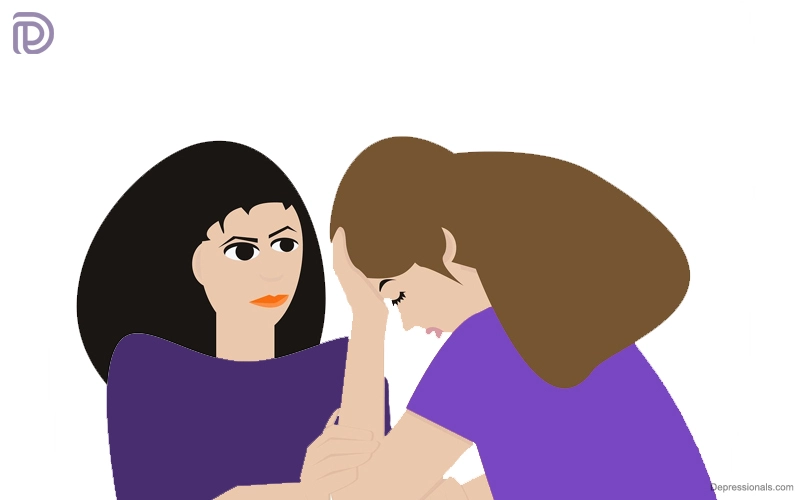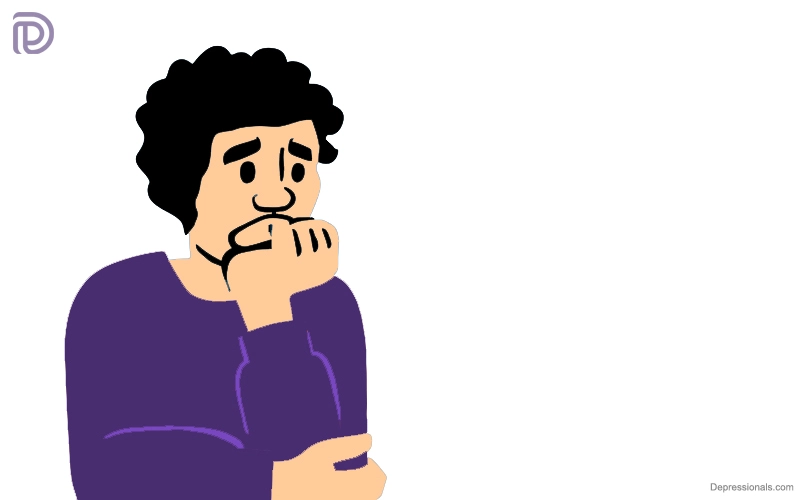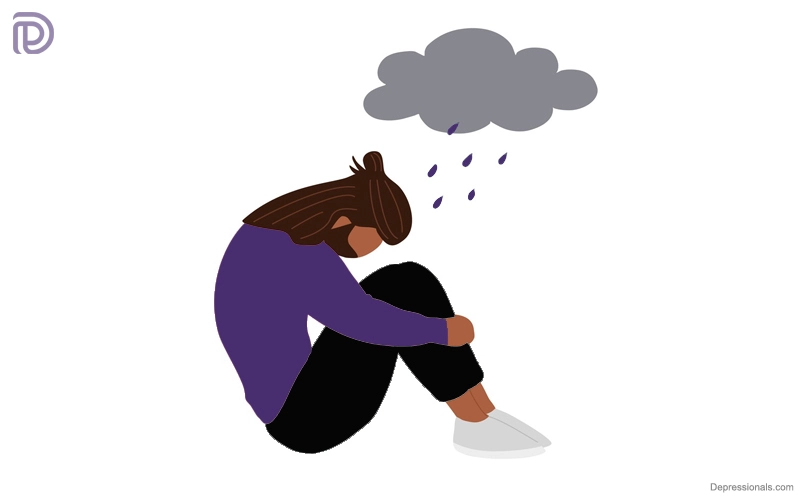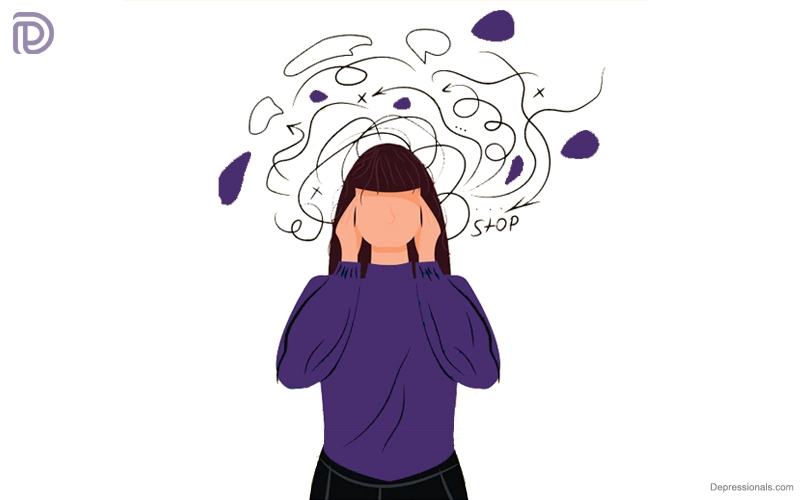Factitious disorder is a mental condition in which an individual behaves as if they have a medical or psychological disorder when the symptoms are the result of their own creation. People who suffer from this condition are prepared to go through unpleasant or dangerous examinations in exchange for compassion and special treatment.
What is factitious disorder?
A severe mental health problem in which a person seems unwell or manufactures physical or mental sickness is known as factitious disorder. People with factitious disorder purposefully create symptoms of disease to receive medical treatment and attention. The symptoms aren’t meant to provide individuals with tangible advantages; instead, the benefit is thought to be primarily psychological.
It is a mental disorder to have a factitious condition. It’s linked to significant mental distress and the risk of people hurting themselves by producing additional symptoms and undergoing needless treatments and operations.
Read: Illness Anxiety Disorder
Factitious disorder vs. Munchausen syndrome
It might seem confusing at first to distinguish Munchausen syndrome from factitious disorder if you are unfamiliar with the term.
A brief answer may be found here: Munchausen syndrome is part of the broader category of factitious disorders, although both terms are commonly used by healthcare professionals.
The most accurate description of Munchausen syndrome is that it is a factitious disorder characterized by:
- Mainly physical symptoms
- Several episodes of feigned illness and injury
There is an older term which refers to the German cavalry officer Karl Friedrich Hieronymus, Frieherr Von Munchausen, who was known for telling outrageous stories about his experiences.
What are the types of factitious disorders?
There are two types of factitious disorders:
- Factitious disorder imposed on self: The falsification of psychological or physical indications or symptoms falls under this category. Mimicking behavior that is indicative of mental diseases, such as schizophrenia, is an example of a psychological factitious condition. The person may appear perplexed, make absurd statements, and claim to be experiencing hallucinations.
- Factitious disorder imposed on another: People with this disease create or fake sickness symptoms in others under their care, such as children, the elderly, handicapped people or pets. It is particularly common in moms (though it can also happen in fathers) who purposefully hurt their children to gain attention. The offender receives the diagnosis rather than the victim.
What are the risky signs of factitious disorder?
Factitious disorder may manifest itself in the following ways:
- Medical history is dramatic yet erratic.
- Once therapy begins, uncontrollable symptoms grow more intense or alter.
- Relapses that are unpredictable after an interval of progress.
- Extensive understanding of hospitals and/or medical terminology, as well as textbook explanations of sickness.
- Many surgical scars are present.
- The appearance of new or extra symptoms as a result of negative test findings.
- Symptoms only appear when the patient is alone or is not being watched.
- Willingness or enthusiasm for undergoing medical examinations, surgeries or other procedures.
- History of seeking care at a variety of hospitals, clinics and physicians’ offices, sometimes across cities.
- The patient’s reluctance to meet with or speak with family members, friends or previous healthcare practitioners.
- Refusal to be evaluated by a psychiatrist or psychologist.
- Despite the lack of data, predicting bad medical outcomes.
- The patient disrupting discharge arrangements or getting more unwell just before they’re going to be discharged from the hospital.
Read: Somatic Symptom Disorder
How common is factitious disorder?
The number of persons suffering from factitious disorder in the United States is unknown. Because individuals seldom admit their illness, reliable numbers are difficult to come by.
People with factitious illnesses also seek treatment at a variety of healthcare facilities, resulting in skewed data. Factitious condition is thought to affect around 1% of individuals referred to hospitals, although this number is likely underestimated.
Read: Cognitive Disorder
What causes factitious disorder?
The specific cause of factitious disorder is unknown, although researchers believe it is caused by both biological and psychological factors. Some hypotheses imply that a history of childhood abuse or neglect, as well as a history of repeated illnesses in oneself or family members that necessitated hospitalization, may be caused by the disorder’s development.
The majority of individuals with factitious disorder have a history of abuse, trauma, familial dysfunction, social isolation, early chronic medical condition or healthcare experience (training in nursing, health aid work, etc.).
Factitious disorder symptoms
People who suffer from the factitious disorder may experience the following symptoms:
- Make up symptoms or lie about them.
- They inflict pain on themselves to elicit symptoms.
- Change your diagnostic tests (such as tampering with a wound to prevent healing or contaminating a urine sample).
- Be willing to go through unpleasant or dangerous examinations and surgeries in order to gain sympathy and special treatment for those who are genuinely sick.
The majority of persons with factitious disorder are unaware that they have it. They could not understand why they are causing their own disease. Many persons who have disorder also have additional mental illnesses, such as personality or identity issues.
Check: Alice in Wonderland Syndrome
Diagnoses
Factitious disorder is difficult to diagnose because of the deceptive actions involved. Before contemplating a diagnosis of factitious disease, doctors must rule out any probable medical or mental disorders, and they frequently employ a range of diagnostic tests and procedures to do so.
If the doctor cannot discover a physical cause for the symptoms, the patient may be sent to a mental health professional (psychiatrist or psychologist). To assess a person‘s physical and mental problems, psychiatrists and psychologists conduct a detailed history, laboratory tests, physical examinations, imaging and psychological testing.
The doctor makes a diagnosis based on the patient’s attitude and conduct, as well as the elimination of the genuine medical or mental disease.
Factitious disorder treatment
The initial objective of factitious disorder treatment is to alter the individual’s behavior and minimize their need for medical resources. When one person is exposed to factitious disorder, the primary aim is to secure the safety and protection of any actual or potential victims.
Once the initial goal has been achieved, therapy will focus on resolving any underlying psychological issues that may be triggering the behavior.
Psychotherapy (a type of counseling) is the most common treatment for factitious illness. The individual with the disorder’s thinking and conduct will most likely be the focus of treatment (cognitive-behavioral therapy). Family therapy can also assist train family members not to praise or promote the disordered person’s conduct.
There are no drugs available to treat factitious conditions. However, medication can be used to treat any illness that is connected to it, such as sadness or anxiety.
Read: Conversion Disorder
Supporting a loved one with factitious disorder
It generally isn’t helpful to confront a partner, friend, or family member about their behavior if you suspect they are lying about their mental or physical health concerns.
It is important to remember that factitious disorder is a mental illness. It is possible that they may not understand why they are fabricating these symptoms or that they are not capable of stopping themselves from doing so.
Generally, the most effective approach is to offer understanding and compassion, without supporting the behavior, and suggest they seek therapist assistance.
The following might work for you:
- Discussing their symptoms with a therapist if they cause distress
- Instead of asking about their health symptoms, inquire about their work, hobbies, or pets
- You can support your loved one by using affectionate words and kind gestures or by recommending activities for them to do together
- Discussing how to improve communication and the health of your relationship through counseling
It has been suggested that calling out factitious behavior directly can lessen your child’s chances of lying about their symptoms, however, when it comes to children with factitious disorder. It is helpful to seek the help of a child therapist to find out what may be causing the behavior, and to resolve it.
Complications
People who suffer from the disorder are in danger of developing health problems as a result of injuring themselves by inducing symptoms. They may also experience health issues as a result of many tests, procedures, and treatments, as well as a high risk of substance addiction and suicide attempts. The abuse and perhaps death of the victims is a complication of factitious disorder put on another.
Prevention
Currently, no known preventative measures exist for factitious disorder because of the unknown cause. Treatment and testing for factitious disorder may be avoided when it is detected early and treated properly.
Prognosis
One or two brief bouts of symptoms are common in persons with the factitious condition. However, factitious disorder is typically a chronic or long-term, illness that is difficult to cure. Unfortunately, many persons with disorder will not accept or continue therapy because of their poor self-awareness.





A powerful share, I simply given this onto a colleague who was doing a little analysis on this. And he in fact purchased me breakfast as a result of I found it for him.. smile. So let me reword that: Thnx for the treat! However yeah Thnkx for spending the time to debate this, I feel strongly about it and love reading extra on this topic. If doable, as you grow to be experience, would you mind updating your blog with more details? It’s extremely useful for me. Large thumb up for this weblog publish!
Thank you a lot for sharing this with all of us you actually realize what you’re talking about! Bookmarked. Please additionally consult with my web site =). We can have a link trade contract between us!
Very energetic article, I enjoyed that bit. Will there be a part 2?
Hello, i read your blog from time to time and
i own a similar one and i was just wondering if you
get a lot of spam comments? If so how do you protect against it,
any plugin or anything you can advise? I get so much lately it’s driving me mad so any help is very much appreciated.
Thanks for the suggestions you discuss through this website.
It’s a pity you don’t have a donate button! I’d certainly donate to this outstanding blog! I guess for now i’ll settle for bookmarking and adding your RSS feed to my Google account. I look forward to fresh updates and will share this blog with my Facebook group. Talk soon!
Thanks for your post.
Hello.This article was extremely fascinating, particularly because I was searching for thoughts on this matter last Saturday.
Unquestionably consider that which you said. Your favorite justification seemed to be at the net the simplest thing to be aware of. I say to you, I certainly get irked even as other people think about concerns that they just do not recognize about. You managed to hit the nail upon the highest as smartly as defined out the entire thing without having side effect , folks could take a signal. Will probably be back to get more. Thank you
I do not even understand how I ended up right here, however I thought this submit was once good. I do not know who you might be but definitely you are going to a well-known blogger in case you are not already 😉 Cheers!
Interesting article. It is rather unfortunate that over the last years, the travel industry has had to handle terrorism, SARS, tsunamis, bird flu virus, swine flu, and also the first ever true global recession. Through it all the industry has really proven to be robust, resilient plus dynamic, obtaining new ways to deal with trouble. There are often fresh challenges and chance to which the sector must yet again adapt and react.
When I initially commented I clicked the -Notify me when new comments are added- checkbox and now each time a remark is added I get 4 emails with the same comment. Is there any way you possibly can take away me from that service? Thanks!
In these days of austerity plus relative stress and anxiety about incurring debt, many individuals balk up against the idea of making use of a credit card to make acquisition of merchandise or perhaps pay for a vacation, preferring, instead only to rely on this tried and also trusted means of making transaction – raw cash. However, in case you have the cash on hand to make the purchase completely, then, paradoxically, that’s the best time for them to use the credit cards for several reasons.
Hello, i think that i saw you visited my site so i came to “return the favor”.I’m attempting to find things to improve my site!I suppose its ok to use a few of your ideas!!
Great write-up, I’m a normal visitor of one’s blog, maintain up the nice operate, and It is going to be a regular visitor for a lengthy time.